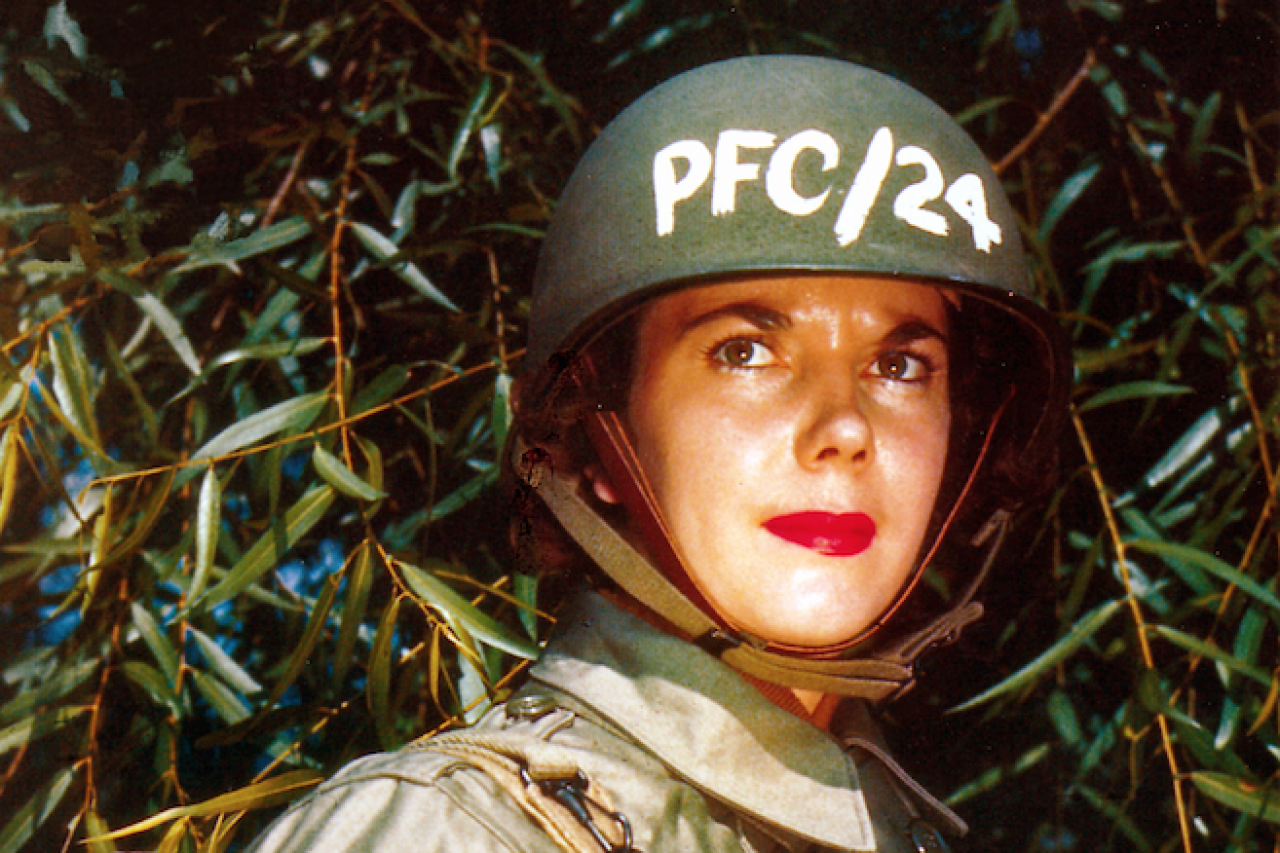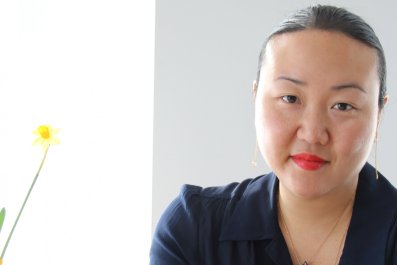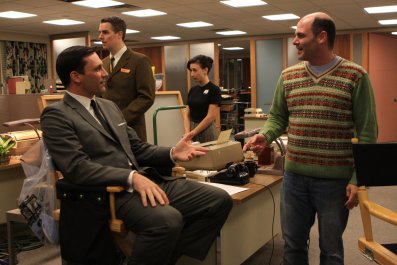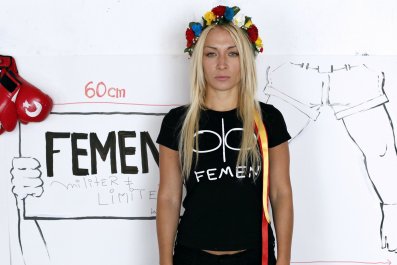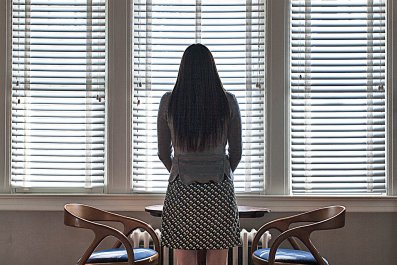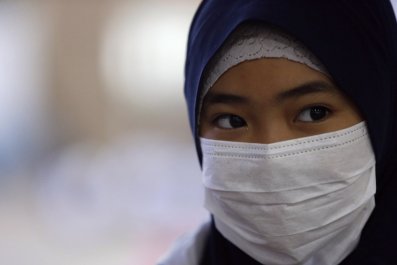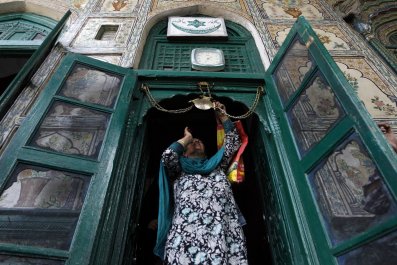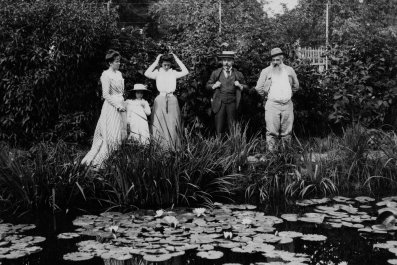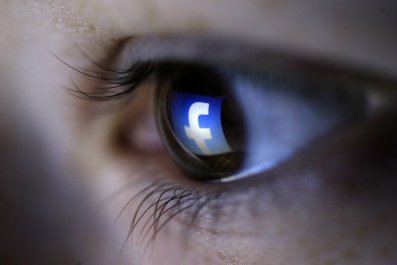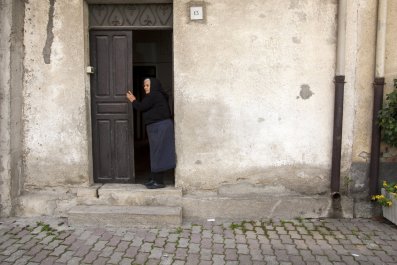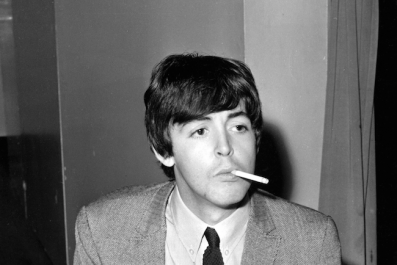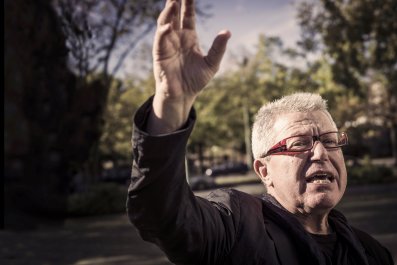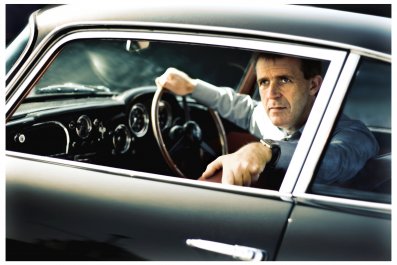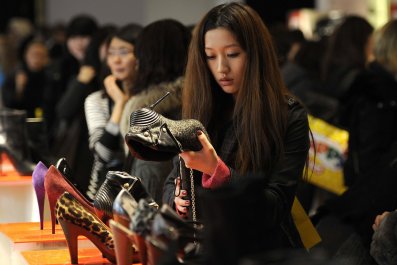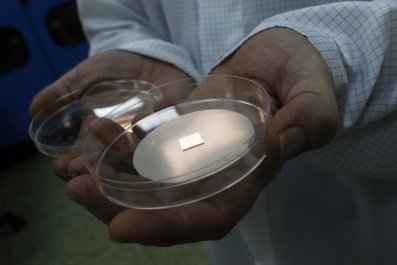Seventy years ago on 15 April, Lieutenant Colonel Mervyn Willett Gonin DSO was one of the first officers allowed into the newly-liberated concentration camp at Bergen-Belsen. Among the harrowing scenes he recounted was a glimpse of hope where he hadn't expected it. He reported that nothing did more to make the internees into individuals again than the unrequested delivery of large quantities of red lipstick. Starved and traumatised, they painted their lips scarlet and it started to "give them back their lost humanity".
Lipstick might seem the ultimate frivolity, but it is also well known as a morale-booster. It's war-paint. It cheers you up. It makes you feel altogether bolder. Because of its shape, the chunk of wax, oil and pigment that forms the operative part of a lipstick is known as the "bullet". And like a bullet, it has an impact out of all proportion to its size.
During the Second World War, the Red Cross distributed lipstick to women serving with the army – this may be how Lt Col Gonin came to receive his consignment – and cosmetics companies produced bright lipsticks like Regimental Red (Helena Rubinstein) and Victory Red (Elizabeth Arden).
Just why may baffle men, but to women it is simple. "Good self care, including attending to beautification, is a sign of wellbeing," says psychologist Lucy Beresford. "It's an indicator that our self-worth is intact. Having access to make-up can make us feel more in control of our lives, particularly when other aspects of our lives are beyond our control. In prison for example, it can feel as if our identity as a woman or an individual is under threat."
Make-up is not banned in British prisons but in practice there is not much of it about. This was something economist Vicky Pryce experienced when she spent time inside in 2013 (for perverting the course of justice with her former husband, then Cabinet minister Chris Huhne).
"I wasn't allowed to take any toiletries into Holloway," says Pryce, who has since written a book called Why Women Need Quotas. "The only way you get them is if they are sent to you – you need permission for that – or, if you earn enough or brought money to prison with you, you can use that money to buy things from the Avon catalogue." But prison wages of £1.25 for a morning work session don't go far and cash is needed for phoning home, or buying stamps, or getting your hair done, with cuts costing £1.50 and colouring £2.50.
"When women had visits, they would spend a lot of time getting ready for them, getting their hair and nails done to appear to be on top of things to their partners or children. And they would dress up as if going to work outside of the prison, but for socialising inside, people would turn out in dressing gowns," says Pryce.
In real life, would prisoners ever look as glam as in American TV drama Orange Is The New Black? Perhaps if they turned to "fake-up", using the sugar-shell of a red M&M to tint lips, adding powdered coffee to face cream as a substitute to foundation, or rubbing the luminous pink colour of T-Mobile advertisements in magazines onto cheeks to mimic blusher.
They would not do it if the transformative effect of these humble daubings did not go far further than skin deep, something that applies also to those whose sentence is illness rather than imprisonment.
For 21 years, the charity Look Good Feel Better has sent beauty therapists into hospitals to help women struggling with the visible signs of cancer treatment redraw eyebrows, smooth a chemotherapy-mottled complexion and literally put on a brave face.
The hashtag for the charity is warpaint4life. "It's more than just putting on make-up," says Maria, one of the campaign ambassadors. "You're putting on your persona and you're fighting back."
Lieutenant Colonel Gonin's report from Belsen, April 1945
"It was shortly after the British Red Cross arrived that a very large quantity of lipstick arrived. This was not at all what we men wanted, we were screaming for hundreds and thousands of other things, and I don't know who asked for lipstick.
"I wish so much that I could discover who did it, it was the action of genius, sheer unadulterated brilliance. I believe nothing did more for those internees than lipstick.
"Women lay in bed with no sheets and no nightie but with scarlet red lips, you saw them wandering about with nothing but a blanket over their shoulders, but with scarlet red lips. At last someone had done something to make them individuals again, they were someone, no longer merely the number tattooed on the arm. At last they could take an interest in their appearance.
"That lipstick started to give them back their humanity."



